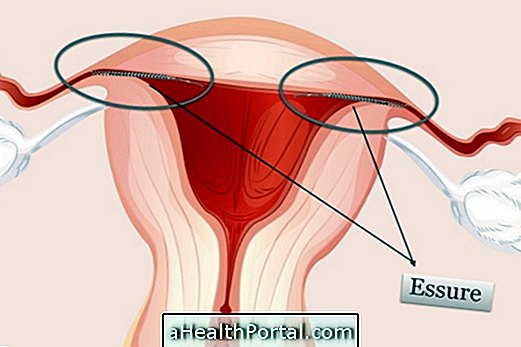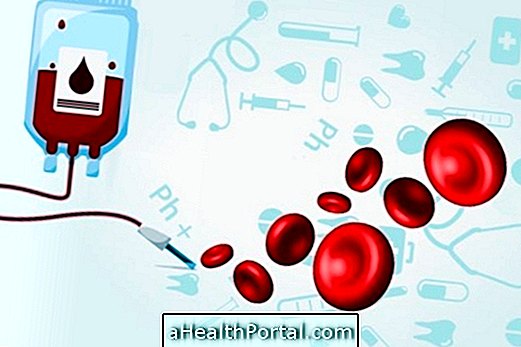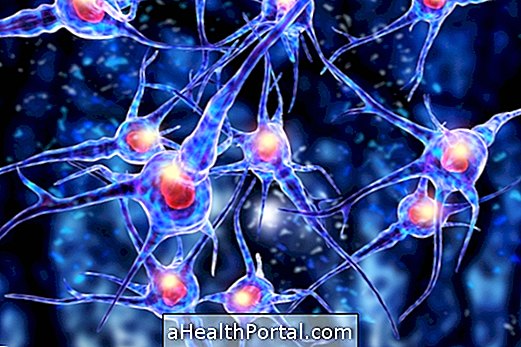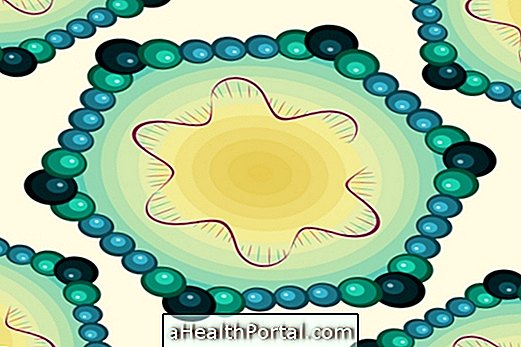A couple can get pregnant right away on the first try or take months to get pregnant. Normally when the couple is in good health, is not anxious and has relationships during the woman's fertile period the pregnancy happens spontaneously.
However, when the couple is unable to conceive naturally after 1 year of attempts, they may seek medical advice to assess the existence of fertility problems and if they are confirmed, the couple can be informed of the possibilities of fertility treatments as well as the techniques of fertility. that can be used.
See below 7 reproduction techniques available to increase the chances of having a child.
1. Induction of ovulation
The induction of ovulation is done through injections or long with hormones that stimulate the production of ovules in the woman, increasing their chances of getting pregnant.
This technique is mainly used in women with hormonal changes and irregular menstrual cycles, as in cases of polycystic ovaries.
2. Intimate programmed relationship
In this technique, the intimate relationship is planned for the same day the woman will ovulate. The exact day of ovulation is accompanied by ultrasound of the ovary throughout the month, allowing the doctor to know the ideal day to try to have a baby. Another possibility is to buy an ovulation test that you buy at the pharmacy to know when you are ovulating.
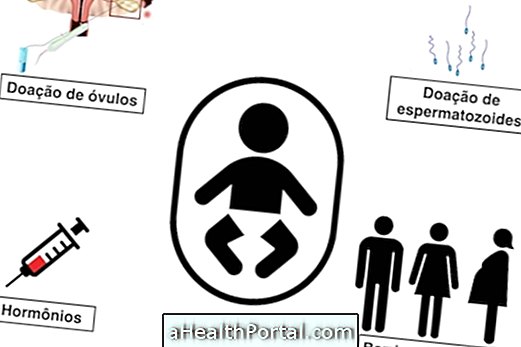
3. Artificial insemination
Artificial insemination is a technique in which sperm are placed directly into the woman's uterus, increasing the chances of fertilization of the egg.
The woman usually takes hormones to stimulate ovulation, and the whole process of sperm collection and insemination is done on the day planned for the woman to ovulate.
4. In vitro fertilization
In vitro fertilization is the union of the ovum and the spermatozoa in the laboratory, to form the embryo. After forming, 2 to 4 embryos are placed in the woman's uterus, so it is common for twins to occur in couples who have had this procedure. See step-by-step how in vitro fertilization is done.
5. Egg donation
Egg donation can be used when a woman can no longer produce eggs, usually due to early menopause. Thus the reproduction clinic produces an embryo from the egg of an unknown donor and the sperm from the partner of the woman who wishes to become pregnant.
This embryo is then placed in the womb of the woman, who will need to take hormones to prepare the body for pregnancy. It should also be noted that it is possible to know the physical and personality characteristics of the woman donating the egg, such as skin color and eyes, height and profession.

6. Sperm donation
Sperm donation can be used when a man can not produce sperm, a problem usually caused by genetic changes.
Thus, the embryo is formed from the sperm of an unknown donor and the ovum of the woman who wishes to become pregnant. It is important to emphasize that it is possible to choose the characteristics of the man who donates the sperm, such as height, skin color and profession, but it is not possible to identify who the donor is.
7. "Rent Belly"
The belly rental, also called a replacement uterus, is when all gestation is done on the belly of another woman. The rules of the surrogacy require that there can be no payment for the process and that the woman to lend the belly must be up to 50 years old and be a relative in the fourth degree of the mother's father or mother, being a mother, sister, aunt of the couple.
When to seek medical help to get pregnant
The general rule is that you should seek help getting pregnant after 1 year of unsuccessful attempts, as this is the time most couples take to get pregnant.
However, you need to be aware of some situations that require early help, such as the age of the couple and the history of problems in the reproductive organs. Here's what to worry about and know when to get help early.
Age of woman
After the woman reaches age 35, the couple should try to get pregnant naturally for 6 months, and it is important to seek medical help after that period.
The slightly advanced age causes the woman to produce eggs with lower quality, which makes pregnancy difficult. Thus, one should not waste too much time before looking for the doctor so that the age does not continue to advance, hindering the success of the gestation.
Irregular menstrual cycle
The irregular menstrual cycle is a sign that ovulation is not occurring monthly, as it should be. This means that the woman can not produce the egg that, along with the spermatozoon of man, will generate the baby.
Thus, in the presence of an irregular menstrual cycle, one should seek the physician to evaluate the cause of the problem and initiate appropriate treatment.
Problems with the reproductive system
Women with reproductive problems, such as septate uterus, endometriosis, polycystic ovaries, or tubal obstruction should seek medical advice as soon as they decide to become pregnant, as these diseases increase the difficulty of bearing children and should be treated and monitored by the gynecologist.
The same rule applies to men diagnosed with varicocele, which is the enlargement of the veins in the testicles, the main cause of male infertility.
History of 3 or more miscarriages
Having a history of 3 or more miscarriages is a reason to seek the doctor when deciding to become pregnant, as you must evaluate the causes of the miscarriages and carefully plan the next pregnancy.
In addition to the care before pregnancy, all pregnancy should be closely monitored by the physician to avoid complications for both the mother and the baby.
Managing Anxiety Having a Child
It is normal to feel anxious for the pregnancy to happen soon, but it is important to remember that it is natural for the positive result to take longer than desired. Thus, it is essential that the couple support and keep trying, and that they know the time to seek help.
However, if they want to know immediately if there is any problem of infertility, the doctor should be sought for the couple to undergo a health assessment to identify if there are fertility problems. See the exams used to evaluate the cause of infertility in the couple.
It is important to be alert to the presence of diseases that interfere with fertility, so be aware of the diseases that cause infertility in men and women.



